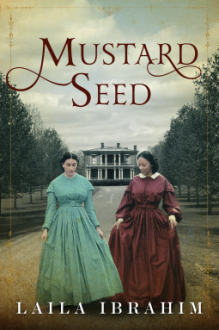
Khaled Hosseini wurde 1965 in Kabul als Sohn eines Diplomaten geboren und wuchs als Asylant in Kalifornien auf, da seine Familie nach einigen Jahren in Paris aufgrund der politischen Lage nicht nach Afghanistan zurückkehren konnte. 2001 begann er, „Drachenläufer“ zu schreiben, das 2003 veröffentlicht wurde und die weltweiten Bestsellerlisten im Sturm eroberte. 2007 folgte sein ebenso erfolgreiches zweites Werk „Tausend Strahlende Sonnen“. Hosseini schreibt über die Menschen Afghanistans, öffnet den Blick der Welt für ihr unfassbares Leid. Seine Stiftung The Khaled Hosseini Foundation unterstützt afghanische Frauen, Kinder und Flüchtlinge mit Bildung und Wohnungsbau. Kaum zu glauben, dass ich „Tausend Strahlende Sonnen“ auf der Straße fand.
Mariams Welt zerbricht 1974, als sie 15 wird. Gezwungen, den 30 Jahre älteren Raschid zu heiraten und in die afghanische Hauptstadt Kabul umzuziehen, beginnt für sie ein Leben voller Leid und Schmerz. Raschid betrachtet sie als sein Eigentum. Er schlägt sie, demütigt sie bei jeder Gelegenheit. Die Zeit vergeht für Mariam hinter dem Schleier einer Burka, ungesehen und stumm. Die politischen Erschütterungen in Afghanistan – blutige, furchtbare Kriege – haben wenig Einfluss auf ihre persönliche Hölle. Erst nach 18 Jahren einer lieblosen, gewalttätigen Ehe tritt Laila in ihr Leben. Lailas gesamte Familie wurde bei einem Bombenanschlag ausgelöscht. Sie hat keine andere Wahl, als Raschids Ehefrau zu werden. Anfangs betrachtet Mariam Laila als unerwünschten Eindringling. Doch schon bald erkennt sie, dass das junge Mädchen ebenso eine Gefangene ist wie sie. Zwischen den beiden Frauen entwickelt sich eine tiefe Freundschaft. Gemeinsam trotzen sie allen Grausamkeiten, die ihnen ihr Ehemann und der Krieg entgegenschleudern.
Ich kann nicht verstehen, wie jemand ein wundervolles Buch wie „Tausend Strahlende Sonnen“ auf der Straße aussetzen konnte. Hat dieser Mensch denn kein Herz? Ich bin sehr froh, dass ich Khaled Hosseinis zweiten Roman retten und ihm ein neues Zuhause geben konnte, weil mich die Lektüre wirklich berührte. Das Buch ist ein feinfühliges, ehrliches, liebevolles Portrait eines kriegsversehrten Landes und seines Volkes. In Afghanistan herrscht seit 40 Jahren Krieg. 40 Jahre. Europäer_innen können sich vermutlich gar nicht vorstellen, was das bedeutet. Ich kann es nicht. Aber dank Khaled Hosseini, der sich überzeugend in seine weiblichen Protagonistinnen hineinversetzt, sie glaubwürdig charakterisiert und Mariams und Lailas Schicksal fest mit der Geschichte des Landes verschweißt, habe ich zumindest eine Ahnung davon, wie sehr die Bevölkerung seit Jahrzehnten leidet, speziell Frauen und Kinder. Teile der politischen Historie Afghanistans waren mir bereits bekannt; ich wusste von der sowjetischen Besatzung und den Bemühungen, den Kommunismus zu etablieren. Ich wusste jedoch nicht, dass mit dem Abzug der sowjetischen Truppen 1989 erst recht Chaos ausbrach. Rivalisierende Mudschaheddin-Gruppen bekämpften sich bis aufs Blut, natürlich auf dem Rücken des Volkes. Die Situation wurde so schlimm, dass die Taliban, die Kabul 1996 eroberten, als größte Hoffnung auf Frieden verstanden wurden. Es ist traurig, wie schnell sich diese Hoffnung ins Gegenteil verkehrte. Die radikal-islamischen Taliban erließen Gesetze, die jegliche Kreativität unterdrückten, strenge religiöse Vorschriften diktierten und die Rechte der Frauen massiv beschnitten. Hosseini zeigt diese hässliche Seite des Islams, die aus westlicher Sicht oft paradox, ungerecht und schlicht grausam ist, authentisch und eindringlich. Es ist schwer zu begreifen, wie viel Elend Mariam und Laila aushalten, ohne zu zerbrechen. Weder ihr Ehemann, noch die Mudschaheddin, noch die Taliban vermögen, ihre Stärke, die sich aus ihrer kostbaren, tiefen Beziehung zueinander nährt, zu verkümmern. Bevor sie sich kennenlernen, werden beide Frauen ausführlich vorgestellt, sodass die Leser_innen nachvollziehen können, dass sie sich aufgrund ihrer Unterschiede ergänzen. Mariam, die ältere der beiden, wurde als uneheliches Kind geboren. Ihr wurde stets vermittelt, wertlos zu sein, weshalb sie sich zu einer stillen, introvertierten und unsicheren Frau entwickelte. Es erschütterte mich, dass sie trotz all der Jahre unter Raschids Misshandlungen, der den Albtraum eines muslimischen Ehemanns verkörpert, keinen Funken Bitterkeit in sich trägt. Ihre sanfte Persönlichkeit steht in krassem Kontrast zu Lailas mutigem Selbstbewusstsein, die aus einem liebenden, progressiven Elternhaus stammt und fortwährend gefördert wurde. Sie besitzt ein Feuer, das nicht einmal Raschid ersticken kann. Ich fand es nicht überraschend, dass Laila am Ende des Buches eine von einer Million Afghanen ist, die 2003 den Wiederaufbau ihrer Heimat vorantrieben. Es brach mir das Herz, zu wissen, dass all das Leid und die Gewalt bis heute kein Ende gefunden haben.
„Tausend Strahlende Sonnen“ ist ein ergreifendes, bestürzendes Buch, das die tiefe Liebe des Autors Khaled Hosseini zu seinem Geburtsland intensiv abbildet. Tragischerweise ist die fiktive Geschichte von Mariam und Laila vermutlich kein außergewöhnliches Schicksal. Zwangsehen, brutale häusliche Gewalt, Unterdrückung und Diskriminierung von Frauen sind noch immer Realität in Afghanistan. Umso wichtiger ist es, dass sich Menschen wie Khaled Hosseini für Aufklärung und humanitäre Hilfe einsetzen. Es ist bewundernswert, dass er seinen Worten Taten folgen ließ und seine Stiftung gründete. Tatsächlich beeindruckt mich seine Konsequenz sogar ein wenig mehr als „Tausend Strahlende Sonnen“, dem meinem Empfinden nach das gewisse Etwas zu einer 5-Sterne-Bewertung fehlt. Es ist zweifellos aufwühlend, doch es brachte mich widererwartend nicht zum Weinen. Trotz dessen kann ich euch das Buch wärmstens empfehlen. Das Leid des afghanischen Volkes muss gehört und gesehen werden.


 Log in with Facebook
Log in with Facebook 












